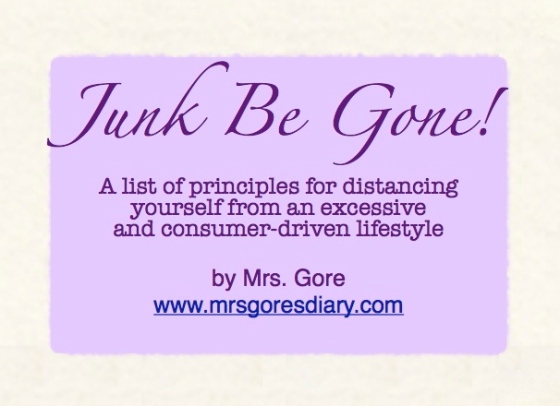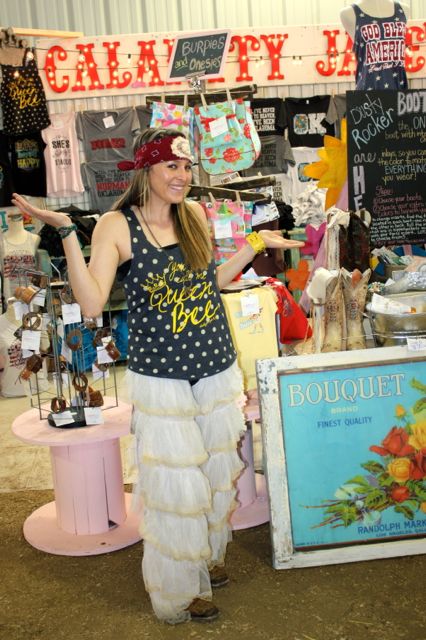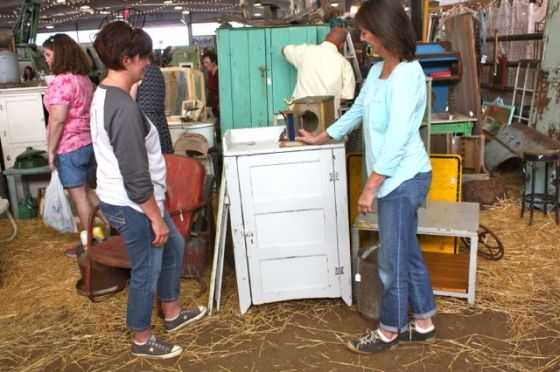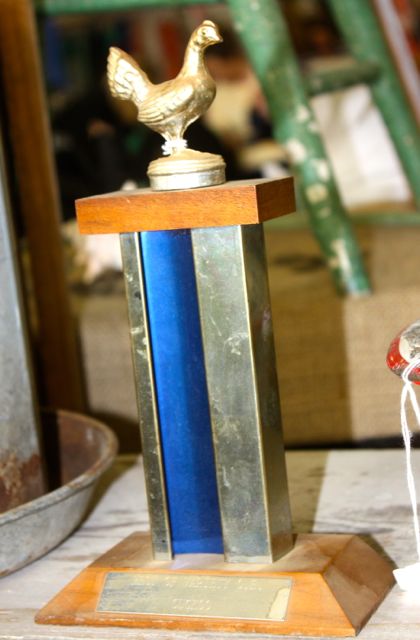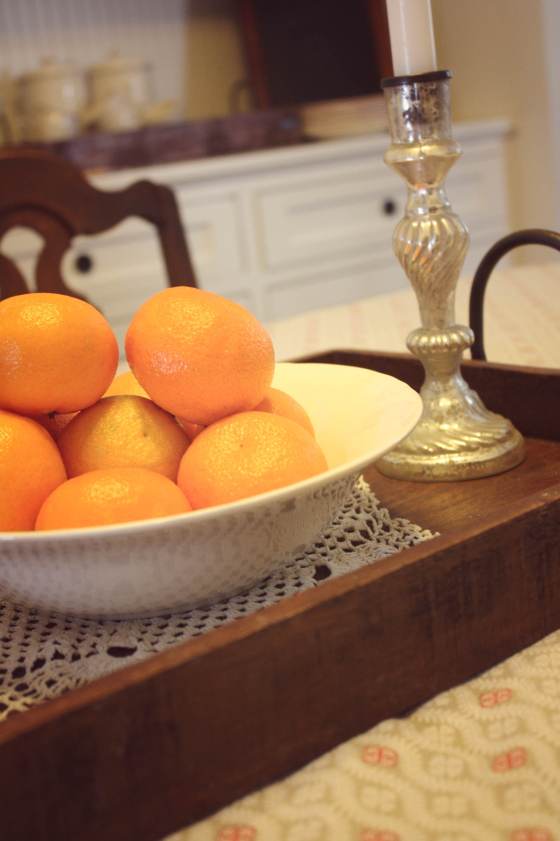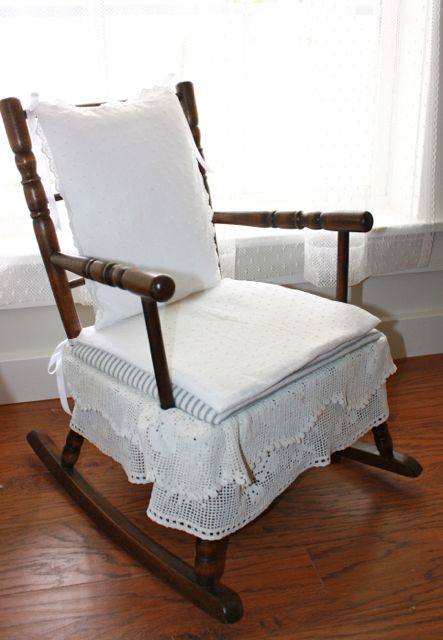Last week, I made the case that the #1 problem housekeepers face today is the excessive amounts of “stuff” we have in our houses.
Today, I want to share with you some things that are helping me tackle this problem, but after some serious thought, I’ve decided to break this list up into two parts: in my next post, I’ll share practical ideas for how we are paring down the excess that already lives in our home. Today, however, I’ll be discussing principles for keeping the excess out in the first place…
Before you bring things home:
1. Make wishlists.
I know this seems counter-productive, but believe me, it works: set up an online account at your favorite stores and make detailed lists of what you’d like. I have a list for each of my children, for homeschool, for my personal wishes, for our house, our yard, our wardrobes, our library…pretty much everything! “How does that possibly help with excess?” you ask? Simply this: it prioritizes my spending and challenges me to think about the things I’m buying rather than nickel-and-diming my budget away when I’m out and about. I now rarely buy things unless they are on my list. That means when we are at the grocery store, I buy groceries. That’s it. And the only way I will ever buy a book from the bargain bin at the bookstore is if it is already on my list at Amazon; otherwise, I pass those tempting sale aisles by, at any store. You have to ask yourself: would I rather buy these 5 discounted books that I’ve never heard of, or the 1 hardcover book that would add to my collection of Junior Illustrated Classics? Would I rather buy 3 of these inexpensive shirts that match nothing in my daughter’s closet or get her that one complete outfit on her list that I know she’ll wear and will hold up well?
The only time I veer from this principle is when I am at an antique store or among one-of-a-kind products, but even there, I try to exercise great caution and refrain from grabbing stuff just because I like it. I think the fastest way to deplete your budget and bring stuff into your home that you don’t need is to shop without thinking first.
Wishlists are also very helpful, in that, when your young kids are dying to buy at toy or a book when you’re out running errands, you can say, “We’ll add that to your list when we get home and maybe you’ll get it for your birthday.” It has to be a really special day for us to buy a toy on a non-holiday…little indulgences like that pile up fast, especially when you start adding multiple children to your home.
2. Stay home.
A really great way to bring a bunch of stuff into your house is to frequent places where stuff is sold. Those trips to the mall where you just meander around all day, going in and out of every store, will pretty much ensure that you’ll come home with bags of excess that you don’t need. And its funny…everytime I go to Anthropologie, I realize that there are at least 10 new items that I feel like I can’t live without. Staying home pretty much completely solves this problem.
3. Realize that you are a marketing target.
I used to see shopping as a quest where I could use my prowess and be a mighty hunter of great bargains and deals, but when it began to dawn on me that I was less hunter and more prey, it took a bit of the sparkle out of my shopping adventures. I could no longer view those $5 movie bins at Wal-Mart as just happenstance, but saw them for what they really were: a marketer’s snare to catch me and entice me to spend hard-earned money on things I didn’t need.
This knowledge has given me the discernment to look past that pretty packaging and see a bar of plain ol’ soap, and to pass up every “clearance sale” and “buy 3-get-1-free” promotion that catches my eye. I tote home far less “bargains” and “treasures” as a result, thank God!
And don’t even get me started on outlet malls…
4. Likewise, protect your children from consumerism.
I used to love, love, love poring over the J.C. Penney Holiday Wishbook, circling anything that called out to me as I made birthday and Christmas lists galore. Thus, when he was just a toddler, I was so excited to introduce my son to his first toy catalogue. But even though his eyes lit up at the pretty pages and he enthusiastically circled toy after toy as he kept himself occupied for about 30 minutes, the entire experience surprisingly left me a little saddened…
Because what had I really just introduced him to? Pages and pages of unimportant stuff that lit a fire of desire in his little heart. Since that time, the conviction has grown that I need to work at sheltering my kids from commercials, catalogues and even stores that would awaken in their hearts a longing for the unending supply of worldly goods available to us today. I must guard their hearts, even as I work at guarding mine, and teach them where true joy and fulfillment is found.
6. Change your gift-buying and gift-giving mentality.
My husband has really helped me with this one. I used to buy such-and-such amounts of gifts for this-and-this-and-this-and-this holiday because that’s they way things were done. Mr. Gore, however, is an objective thinker and never does things “just because”, which has led us to this point: as our budget allows, we buy special things for the ones we love to show them love, whenever we want or whenever we see something that makes us think of them. That means that we might buy one really special present for a loved one for her birthday, but if nothing strikes us, we don’t just go to Bath and Body Works and grab something for $20 so she’ll have something to open. Replace hastily bought and unthoughtful gifts like that with perishable gifts like flowers or baked goods, things that will be enjoyed but that won’t add to the piles of stuff in your house or in the homes of your loved ones. Even our tiny little daughters are so thrilled to receive a little bouquet of flowers on special occasions…it makes them feel loved, and that’s the point, right?
This is really important when it comes to filling up Christmas stockings and Easter baskets or when purchasing little sibling gifts on birthdays. Refrain from just buying nonsensical filler, again, opting for perishable goods such as special candies or fruits, or even better, practical things, like cool new toothbrushes or underwear or a Chick-fil-a giftcard or pretty pencils for school. I gave my daughter some special undershirt/panty sets in her stocking this year, and I think it was her favorite gift of the season. Those little cheap toys that call out to us at holiday time are just absolutely the worst thing to bring into our homes.
Just ask the nightmare that awaits me upstairs…
6. Likewise, change your gift-receiving mentality.
Just because it is a gift, doesn’t mean you have to keep it forever. Gifts are supposed to make you feel loved. So take a moment, a couple of months, even, to feel that love, and then decide…do I want to keep this? Sometimes the answer is a resounding “yes!” and you know in your heart you will keep it for the rest of your life. But sometimes the answer can be no. You have to be discerning here, and you should always keep a grateful heart, but don’t feel like you have to keep things around for the rest of your life just because someone gave it to you.
This is especially true when you are getting married or having baby showers. You will likely receive a mountain of stuff from friends and family. Keep the things you love and will use, and exchange the rest for gift cards. I know that seems harsh, but remember what you’re working toward in taming the excess in your home: hospitality… comfort… organization… peace… again, this calls for discernment and tact, but for the most part, your loved ones are giving you gifts to help you, and they won’t have a problem with you exchanging or returning them.
My personal rule of thumb is to keep at least one thing I really love from the people I really love, things that suit me while reminding me of them. Otherwise, I feel pretty free to eventually let those things go.
7. Examine your lifestyle and your motives for living the way you do.
Hoarding (and I’m not talking, like, “Hoarders” hoarding, but typical American hoarding) is not necessarily an innocent personality trait. In many cases, it points to something deeper. A root of sin, even. Some of us may be living like this world is our home, storing up as many treasures as possible. Some of us may be making idols out of possessions, acquiring more and more and more because it makes us feel good and excited and momentarily fulfilled. Some of us may make more out of ourselves than others, spending all of our extra money on our own homes and families without looking for ways to share it.
These tendencies must be uprooted and repented of, and then replaced with things that are good and true and eternal.
And then some of us might just have that Depression-era attitude that says “keep everything because you might need it someday.” But I told my Mama this, and now I’ll tell you: we aren’t living in the Depression. And while it was a good rule at the time that you should keep your floursacks because you might need them to make dresses, more often than not, Americans today need to do a lot less keeping and a lot more tossing (and there are so many ways to “toss” without adding trash to the heap – we’ll go over some of that in my next post). My personal rule, and one you’ll find in almost any blog post or article on organization: if you don’t love it or use it, get rid of it.
8. Stop being thoughtless.
But then much of our excessive lifestyles are simply nothing more than a failure to think about what we are doing. We are on some sort of twisted, commercialized American autopilot, and we never consider whether we need to be or not…
We have such-and-such amount of things because everyone else does. We buy cards and gifts on this day because it is a holiday! We have a son and so we need legos and cars and dinosaurs and armymen and Lincoln Logs and erector sets and a train and baseball gear and football gear and basketball gear and building blocks and toy tools and cowboy stuff, and we have a girl and so we need at least 3 baby dolls and baby doll clothes and diaper bags and a stroller and a toy kitchen and tea sets and pretend food and dishes and cooking sets and aprons and a dollhouse and stuffed animals and dress-up clothes and 50 hairbows and 20 plastic strands of beads and some Barbies, and we have a homeschool and so we need stacks of construction paper and lined paper and unlined paper and cardstock and posterboard and crayons and markers and colored pencils and watercolors and fingerpaints and play-doh and boxes of safety scissors and 500 books and…
oh. my. gosh. When are we ever going to stop?!
It would behoove all of us to put on the brakes and free ourselves from this never-ending cycle of consumption. 
9. Use history as a measuring stick.
Just ask my husband. I am kind of obsessed with comparing our lives today with those who have walked before us. But even though I get carried away sometimes, it has served me well, allowing me to objectively see the world while helping me to realize that I don’t have to buy into every aspect of our culture today.
Let me explain: realizing that life and love existed for centuries before ours and that those people survived (and possibly thrived) on far less than we do gives me the confidence to let go of the indulgent and dangerous lifestyle that America constantly parades before my eyes. Most of our forerunners had hundreds-less toys. No television or movies. Zero electronics. A handful of outfits, probably. Two or three pairs of shoes, at the most. A few oft-read books, perhaps…
I’m not saying that I want to live like a pioneer or a pauper, but my goal in decluttering is to keep my favorites (and even indulge in a few luxuries!) while freeing my family and my own heart from the pressing weight of an excessive lifestyle. The sooner, the better!
10. Use a pared-down lifestyle to preach the gospel.
A life in Christ enables us, in a world where we could “have it all” to say “no thanks. I have everything I need.” What an unprecedented opportunity we have to display our set-apartness. Let us show by our spending, our collecting, and our acquiring that this world has not bewitched us, and that we can enjoy the pleasures afforded us without becoming their slaves.
I think, more than any of the other principles listed here, this one excited me the most.
~
Oh, my dear readers, what an earful that was! But if it encourages any of you to take that first step toward breaking free from an excessive lifestyle, I will feel it was time well spent. I wrote this especially for my young mamas and wives and graduates just starting out in this world in the hopes that you will employ these principles early on, saving yourself a lot of frustration in the future! I’m rooting for you, with all my heart.
Want to remember this? Pin it!
